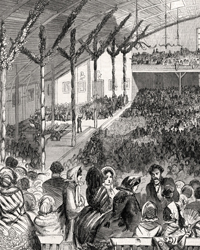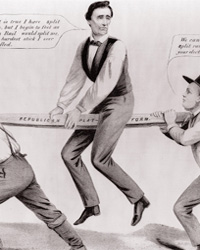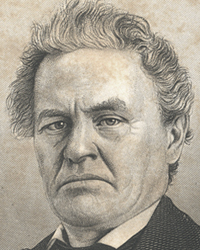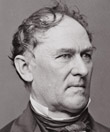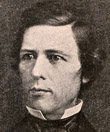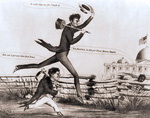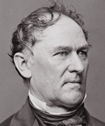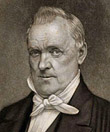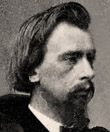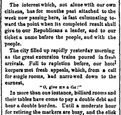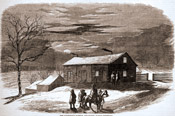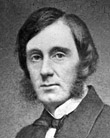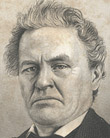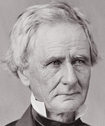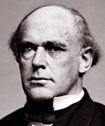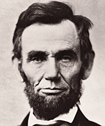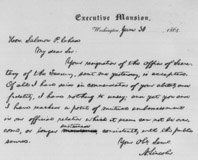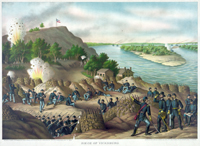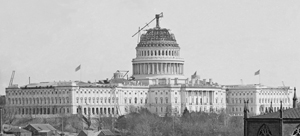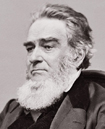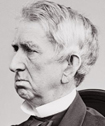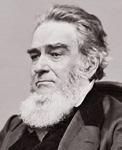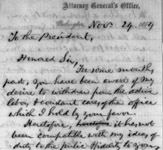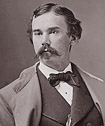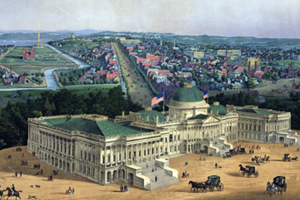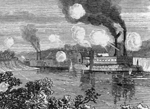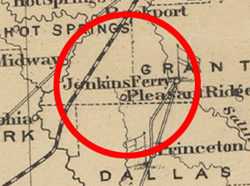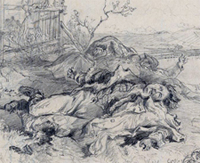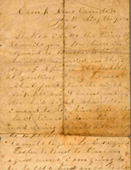Republicans Gather at Chicago
by Michael Burlingame
by Michael Burlingame
The convention opened on Wednesday, May 16, with David Wilmot of Pennsylvania serving as temporary chairman. Orville Browning called him “a dull, chuckle headed, booby looking man” who “makes a poor presiding officer.” The convention hall, specially built for the occasion, was known as the Wigwam because it resembled an Indian longhouse. A large, clumsy, solid, barn-like structure, measuring 100 x 180 feet, with a capacity of twelve thousand people, it was constructed “of rough timber, decorated so completely with flags banner, bunting, etc., that when filled it seemed a gorgeous pavilion aflame with color and all aflutter with pennants and streamers.” The interior resembled a huge theater whose stage was occupied by the delegates and the press. The acoustics were so good that an ordinary voice could easily be heard throughout the building. One journalist deemed it a “small edition of the New York Crystal Palace.”
Republicans Gather at Chicago p. 2
An “overflowing heartiness and deep feeling pervaded the whole house,” John G. Nicolay remembered. “No need of a claque, no room for sham demonstration here! The galleries were as watchful and earnest as the platform. There was something genuine, elemental, uncontrollable in the moods and manifestations of the vast audience.” The city was awash with visitors, some of whom wound up sleeping on tables at billiard parlors. The first two days were devoted to routine business and to adopting a platform that criticized attempts to limit the rights of immigrants; endorsed the sentiments of the Declaration of Independence; condemned disunionism, the popular sovereignty doctrine, and threats to reopen the African slave trade; upheld the right of states to regulate their own institutions; denounced the Buchanan administration’s extravagance, corruption, abuse of power, and support of the Lecompton Constitution; maintained that the normal condition of the territories was freedom; called for the immediate admission of Kansas as a free state; and endorsed protective tariffs, internal improvements (including a Pacific railroad), and homestead legislation.
Republicans Gather at Chicago p. 3
The plank on corruption was emphatic: “That the people justly view with alarm the reckless extravagance which pervades every department of the Federal Government; that a return to rigid economy and accountability is indispensable to arrest the system of plunder of the public treasury by favored partisans; while the recent startling developments of fraud and corruption of the Federal metropolis, show that an entire change of administration is imperatively demanded.” The platform committee omitted any reference to the Declaration of Independence. When doughty old Joshua R. Giddings moved from the floor that a plank endorsing its principles be added, his motion was defeated. Angered, he stormed out of the Wigwam, whereupon young George William Curtis of New York made a stirring speech which reversed that action. Giddings came back radiant.
